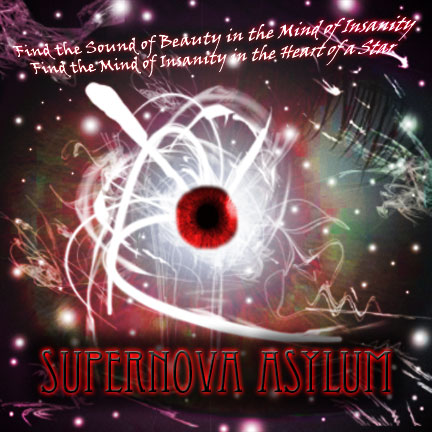Artist: Modest Mouse
Genre: Alternative / “Indie” Rock
Length: 59:43 (72:02 reissue)
Release Date: June 13, 2000 (March 9, 2004 reissue) (2008-09-12)
Label: Epic
Producer: Brain Deck (Simon Askew reissue)
Somewhere in the life of every successful and long-lived group of musicians comes a time when they must make a crucial choice; to vegetate in the same style they have developed and loved from the beginning, or to take the deep risk of mending and experimenting with it. By the former path, bands may stagnate to the point of irrelevancy; by the latter, they risk alienating the fans of all that had come before and thus put their reputations on the line. And by the excessive degree to which fans can take hold of a particular band, seeing them either change or rot away is often an unbearable transition. Such results in a polarized following, one side composed of former disciples who swear by the old works battling against another of those who jumped on the bandwagon with the new. And in the process, it’s the band themselves who end up in the crossfire.
Enter Modest Mouse, the indie darling sextet that has earned accolades and praise amongst underground critics since 1993. In recent years, the band has begun to stir up fury within the more experienced loyalists as they have made the transition into mainstream attention (if somewhat limited in scope). Suddenly the band who had once recorded an EP in a garage had hit #1 on the Billboard 200 with 2007’s We Were Dead Before the Ship Even Sank, and those who felt the band had sold its soul were out for blood. Its such massive transitions that make one question the nature of past albums, as its sometimes possible to trace the gradual evolution of the band into the states they finally arrive in. Such was the purpose when I – a veteran of perhaps the most heated fan-war stalemate of all time, the on-going In Flames debate (though that it is a story for another time) – was parachuted deep into the strife to review Modest Mouse’s supposed magnum opus, The Moon and Antarctica, to see how it held up outside of a fan perspective.
Now as far as I can understand, The Moon and Antarctica was the band’s attempt to expand off the broad base cemented by their previous breakthrough release, The Lonesome Crowded West. Blame the experimentation on either a desire for greater variety or Isaac Brock’s broken jaw if you will, but ultimately for every critic who showered the album in gold stars there was another who thought Modest Mouse was edging into commercial territory; quite frankly, when a band starts licensing songs to Nissan Quest minivan commercials it can be difficult to think otherwise. Yet I can’t help but feel like the commercialization argument has gone the way of a horse that has been beaten one too many times; the glossier production values and major label status aren’t necessarily strikes against TMaA, merely differences. In fact, they often help amplify the more spacious, spacey sound the album develops, which in the land of the Indie City resides on the corner of Mature Street and Engaging Avenue, only occasionally striding into Pretentious Lane to pick up its groceries. To put it in a much less metaphor-laden way, it’s as good a representation of the indie scene as your going to find this side of the decade.
Indeed, the band’s attempts to tinker with their formula resulted in making it much more distinct. The blend of classic folk, alternative song structure and delightful synthesizing in a powerful one indeed that will usually leave the listener immersed up to his or her eyeballs. Though it doesn’t offer too much room for technical chops, that’s hardly what the record is about. Instead, it’s quite keen to manipulate this mellow, laid-back foundation into a variety of different moods throughout the setlist, from sullen and plodding (Perfect Disguise) to bouncy and joyful (Life Like Weeds), and even moments where these moods are exchanged frequently (3rd Planet). The twangy guitar-sound does, however, remain roughly the same throughout, which makes most songs blend together. It also makes the longer tracks like The Stars Are Projectors outlast their welcome, even if the addition of some moderate tempo changes does manage to shake things up. Fortunately, plenty of other moments, like the swooping keyboard dips and dives in Dark Center of the Universe and the surprisingly aggressive opening to A Different City, stand out.
Strangely, the member of the group whose contributions I am least enthusiastic for is the one who practically drives the band, Isaac Brock. His singing style is very unique, for sure, but it sometimes stands in stark contrast to everything else in a song, and eventually becomes rather grating as the album wears on. He’s more of an acquired taste than anything, and due to the aforementioned broken jaw his appearances are actually somewhat limited by alternative standards, so for most it won’t even be a factor. Yet I also have a bone to pick with the lyrics; a lot of people cite them as being exceptionally clever and insightful, and I would agree to an extent, but simply can’t muster the same enthusiasm. Most are open to interpretation – hardly an issue on its own – but without some kind of binding context, many of them could be about…well, anything. Not to mention that many tracks take it into themselves to repeat the same redundant lines several times over; if you don’t know what it means the first time, the next few times will only be bound to reinforce that notion. With enough studying, however, some personal meaning for each song should fall right into place (*winkwink*) for you. Oh, and a special shout-out has to be made to Wild Packs of Family Dogs, which put the dainty little images of dogs eating people and “crying dust blood” into my mind’s eye. A happy album, this is not.
By this token, TMaA personally falls into the little niche of strong, yet sometimes flawed, curiosities. While there are plenty of nitpicks to be made, the overall sound of the album is powerful enough to warrant praise without trespassing previously tread territory – the very definition of a successful experiment. This was certainly not a diversion to be forgotten, either, as traces of the more airy, calmer sound still exist in the songs of newer fare from the band. And for those out there hooked on the atmosphere but not the presence of Mr. Brock, this album will likely provide your best escape. Respectable lyrics and a moody environment combine to make TMaA worthy of attention, both back in 2000 and now.
So what have I now to say to the fanboys of each faction of the Modest Mouse debate? Well to be honest, I probably didn’t even need to hear the album to tell all of them to stop their futile actions before they all give themselves brain hemorrhages. To the newer recruits, I sayeth now that TMaA is a fine album that needs no disrespect, even if you prefer the more widely known, two most recent releases. I have even less comforting things to say to the other group, who will simply have to deal with whatever changes the band has felt are best for them, be it for reasons of nobility or greed. In either case, the past is irreparable, and in this case for the better.
P.S. : Apologies about the delay. My computer seems to have attained some kind of nasty Adware virus that’s slowing down my entire computer, and even preventing me from using some programs whatsoever. I’ve been trying to work my way around it, and hopefully my computer will be clean and running at full speed again by next week.
.jpg)








EYE.jpg)